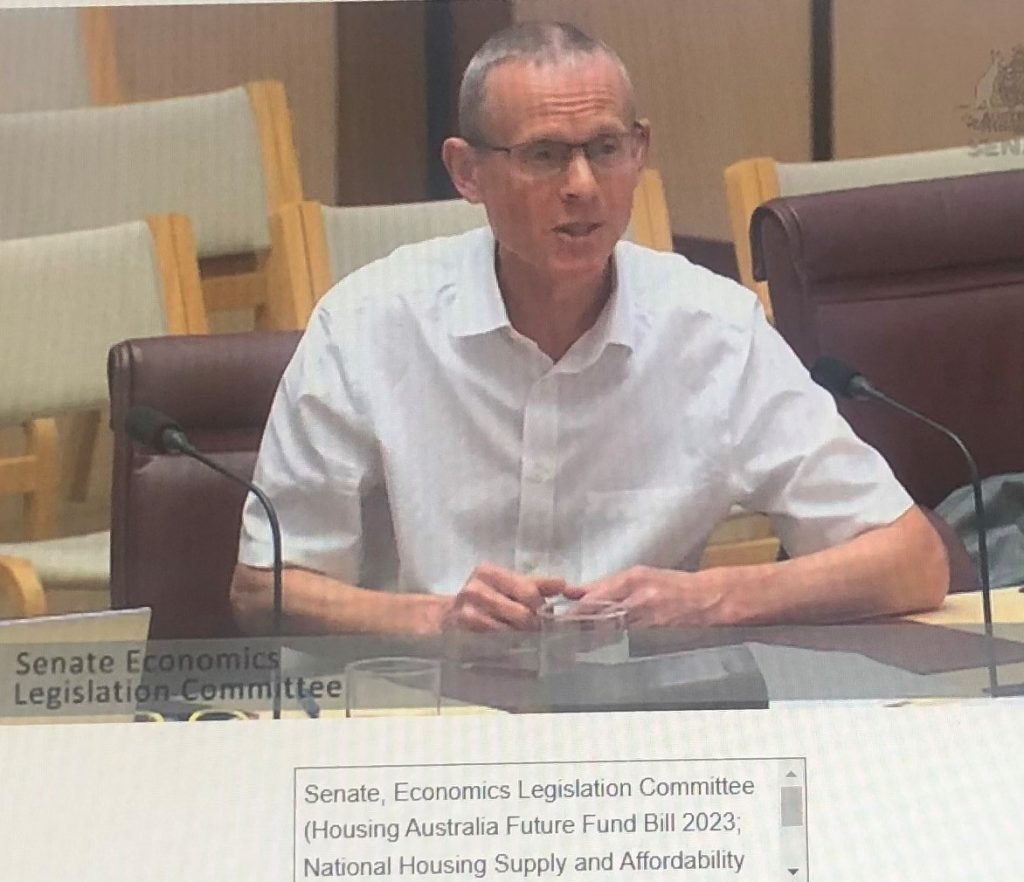
On 15 March Prof Hal Pawson appeared at the Senate Economics Committee Inquiry on the Albanese Government’s package of housing legislation, entered into Parliament in February 2023. Reproduced below is his opening statement to the hearing. This draws on the Centre’s submission to the Australian Government on the draft bills as published in December 2022. The testimony itself can be viewed here.
After a decade of minimal additions to Australia’s social and affordable housing portfolio, the new government’s commitment to initiate a national investment program is greatly to be welcomed.
Rental housing market pressures have been recently compounded by the pandemic. But the need for stepped-up social and affordable housing construction long pre-dates COVID-19. The private rental market’s efficacy in generating housing suitable for low income Australians has been in steady decline over more than 25 years. Census-based research shows that since 1996 the shortfall in the number of private rental dwellings affordable to this group has increased from 48,000 to 212,000.
Beyond the inadequate levels of government investment seen in the recent past, the declining performance of Australia’s housing system also results from a policymaking failure due to a long-term erosion and fragmentation of governmental capacity.
Both at federal and state levels, the past 25 years have seen the progressive disappearance and/or downgrading of ministerial housing portfolios and associated departments. Aspects of housing policy been increasingly split across departments and there has been little effort to foster system-wide analysis or coordinated policy development. These aspects are crucial for a policy area of such complexity and breadth.
Although the hollowing out of governmental capacity has affected many policy areas, it has been especially damaging for housing. It has diminished official housing policy domain knowledge and policymaking capacity. The process has also proceeded in parallel with an increasing tendency to view housing policy as a narrowly defined subset of welfare policy.
Re-establishing a housing minister post within cabinet was an immediate and welcome step taken by the Albanese government that began the task of addressing these problems. The institutional reform proposals in the current legislative package seek to build on this. Again, all this is positive.
However, it is essential to overcome the administrative fragmentation that is a distinct source of recent housing policymaking failure. We also need to ensure that the renewed impetus for national action on housing has an enduring impact. Evidence from other countries provides inspiration on the potentially crucial contribution of a strong national housing agency in these respects.
We therefore argue that the current legislative proposals need to be strengthened in several ways:
- Housing Australia should be accorded a wider analytical and research role to inform policymaking and to support the NHSAC
- Formulation of the NHHP should be re-assigned from DSS to Housing Australia, as should the co-ordination of NHHP implementation and review
- Housing Australia should be charged with developing as well as implementing the National Housing Accord, and with informing re-negotiation of the National Housing and Homelessness Agreement
- NHSAC functions should include an oversight/advisory role on the NHHP
- The NHHP should be ambitiously scoped as well as legislated.